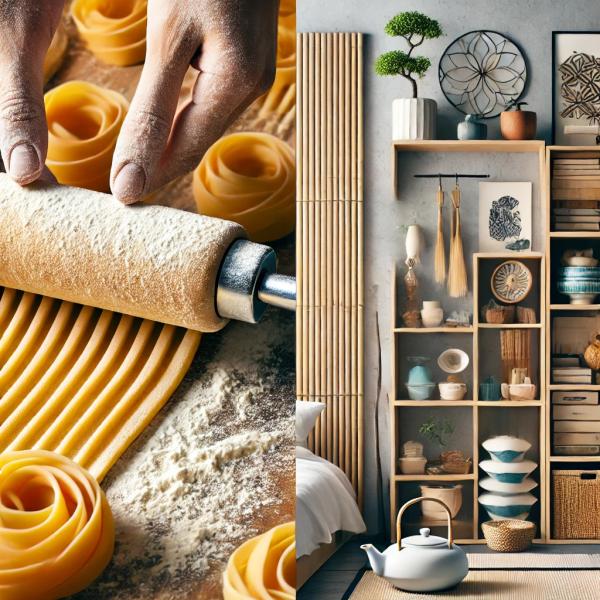
It’s National Pasta Day. Netflix continues its series Chef’s Table with a 4 episode series on noodles. The first episode features Evan Funke, an American Sfoglino, a form of fresh handmade pasta. Whether you must have handmade pasta or not, watching the episode is to see a craftsman at work and paying forward.
Is there any real value to hard work, or is it just a capitalist ploy to extract more from us?
“Economists from Princeton, Vanderbilt and the Federal Reserve Bank of St. Louis have estimated just how much hard work contributes to inequality in lifetime earnings. While the answer depends on context, they arrived at an average for the US workforce: About 20% of the variance in lifetime earnings can be explained by differences in hours worked… “
From Marginal Revolution, How much does hard work matter?
The Longshoreman strike is about wages and automation. While we all understand the desire for more coin, what is happening with automation? It turns out that this is not what we typically think.
“Container unloading and transport is a long sequence of operations, of which only some can be addressed by automation. If your operations aren’t carefully synced, or they’re bottlenecked by some other factor unrelated to automation (such as the availability of truck chassis), then automation can’t do much to help. Conversely, carefully synchronizing operations to minimize waiting and waste doesn’t require automation to achieve. In 2013, the best-performing container terminal in the world was a non-automated APM terminal in the Japanese port of Yokohama. It achieved this via good old fashioned continuous improvement methods to cut out as much waiting as possible.”
From Construction Physics, Do US Ports Need More Automation?
Marie Kondo brought to all of us, with the possible exception of the hoarders, the joy of less clutter. While that seems to be a Japanese concept, it turns out that clutter is also a Japanese aesthetic.
“Minimalist spaces are designed to focus and inspire, then send us on our merry way. Carefully cluttered spaces draw us in, whether in creating a welcoming atmosphere for customers, a stimulating one for collectors, or a creative one for craftspeople. If minimal spaces quietly telegraph the virtues of their creators, so do the best clutter-spaces, in different ways.”
From Aeon, The Joy of Clutter



